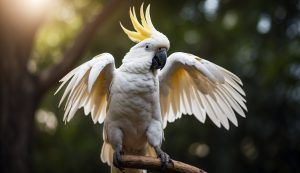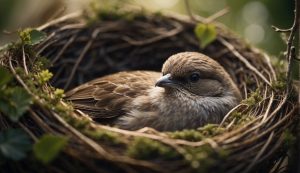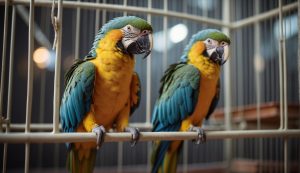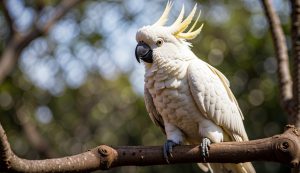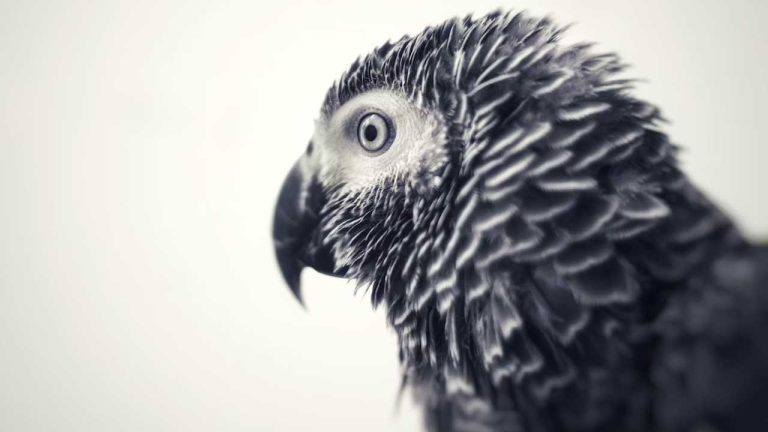Why Does My Cockatoo Scream? Understanding Your Bird’s Vocal Behavior
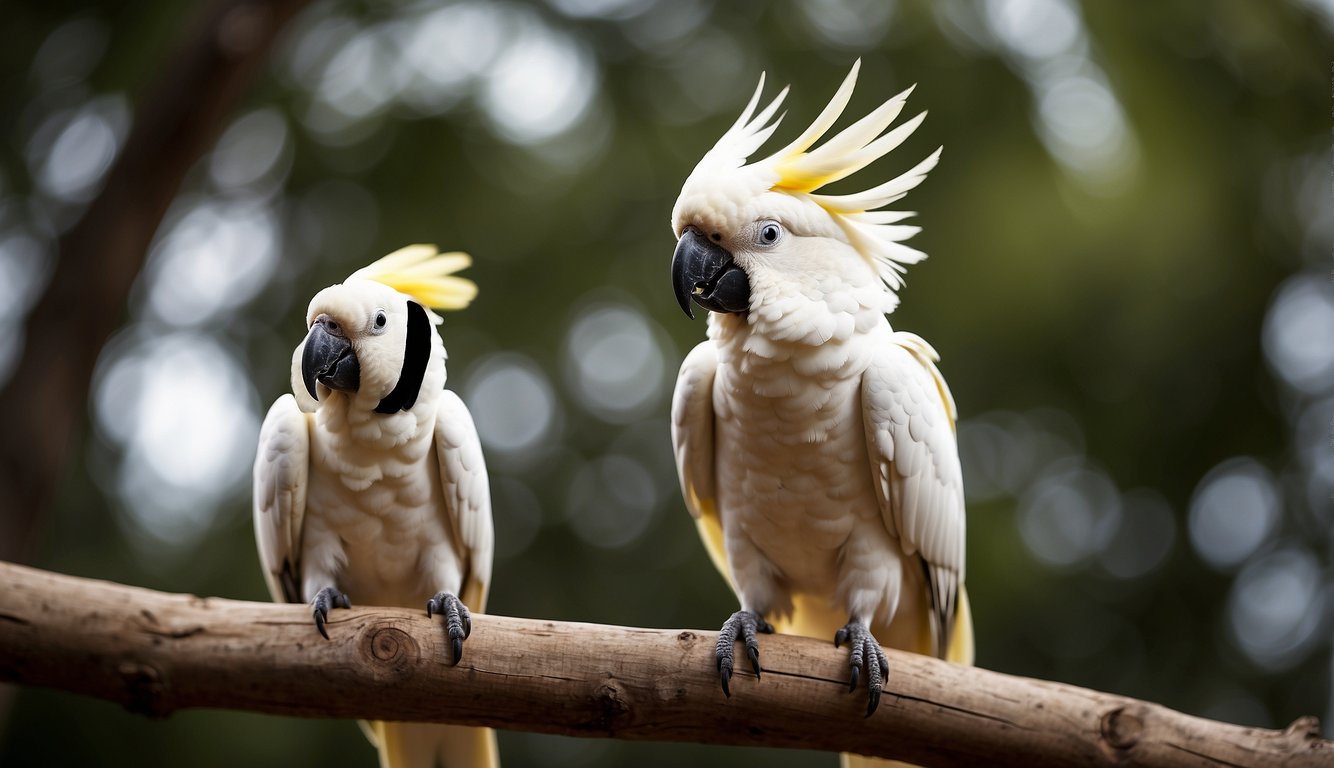
Cockatoos are known for their complex vocalizations, which are an integral part of their behavior. Scream in cockatoos is a natural form of communication, serving various purposes such as alerting the flock to danger, expressing distress, or simply seeking attention.
Understanding why a cockatoo screams is essential for any owner to create a harmonious living situation.
It’s not unusual for cockatoo owners to face challenges with their bird’s vocalizations, as what might be normal behavior in the wild can become problematic in a home environment.
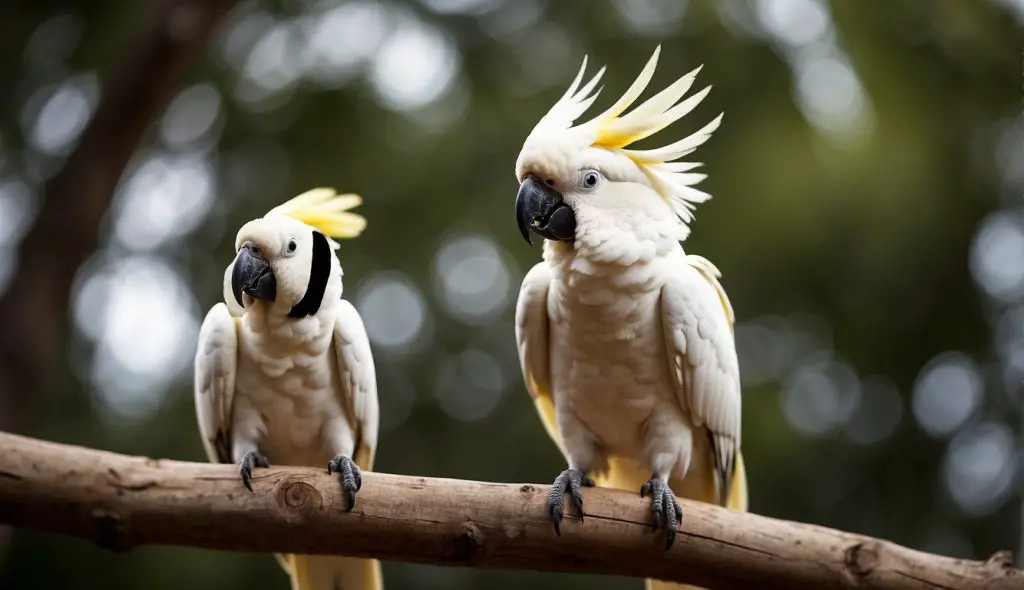
Screaming can sometimes indicate that a cockatoo’s needs are not being met. Changes in the environment, lack of social interaction, or even boredom can lead to increased vocalizations.
It’s important for owners to recognize the difference between normal screaming and signs of behavioral concerns or health issues that require attention.
Providing adequate mental and physical stimulation alongside proper training can help manage screaming behaviors.
It’s crucial for owners to approach these challenges with patience and consistency, as positive reinforcement techniques are often key to reducing unwanted vocalizations.
Key Points
- Cockatoo screaming is a natural means of communication that serves various purposes.
- Excessive screaming can be a sign of unmet needs or health issues.
- Proper stimulation, social interaction, and training are vital in managing screaming behaviors.
Table of Contents
Understanding Cockatoo Vocalizations
In my experience with cockatoos, I’ve noticed that their vocalizations are not just noise; they’re a complex form of communication reflecting their needs and emotions. Let’s explore what these vocal displays mean and how to differentiate between typical sounds and concerning ones.
Communicating Needs and Emotions
Cockatoos are social birds, and they use their vocalizations to communicate.
When I hear a cockatoo vocalizing, it could be signaling several different things: the bird might be excited, happy, looking for attention, or even expressing anxiety or fear.
It’s crucial to pay attention to the context of their sounds. For instance, a loud call might simply mean a cockatoo is calling for its mate, while a series of sharp notes might indicate stress.
- Normal vocalizations include:
- Contact calls when seeking attention or signaling their flock
- Happy chatter during play or when interacting with humans
- Mimicry of sounds they find interesting
- Vocal signs of distress can be:
- Loud, harsh cries when they feel danger or are annoyed
- Repetitive screaming which can be a sign of anxiety or stress
It’s all a part of their natural behavior, and learning to understand these vocal nuances can significantly improve our relationship with these intelligent birds.
Identifying Normal vs. Excessive Screaming
As someone who’s been around cockatoos, I know their noise level can sometimes be annoying. However, distinguishing between their normal communication and excessive screaming is essential.
Normal vocalizations are expected throughout the day, especially at dawn and dusk, which aligns with their natural behavior in the wild.
However, excessive screaming might occur when:
- The bird is not receiving enough mental or physical stimulation
- It is trying to signify that something is wrong, either with their environment or their health
When assessing noise levels, I use these indicators:
- Frequency: Occasional loud calls are normal, but consistently loud and disruptive screaming is excessive.
- Duration: A momentary screech can just be excitement, but prolonged noise could mean distress.
- Context: Understanding the context of the vocalization helps me determine the cause of the screaming.
Environmental and Social Factors
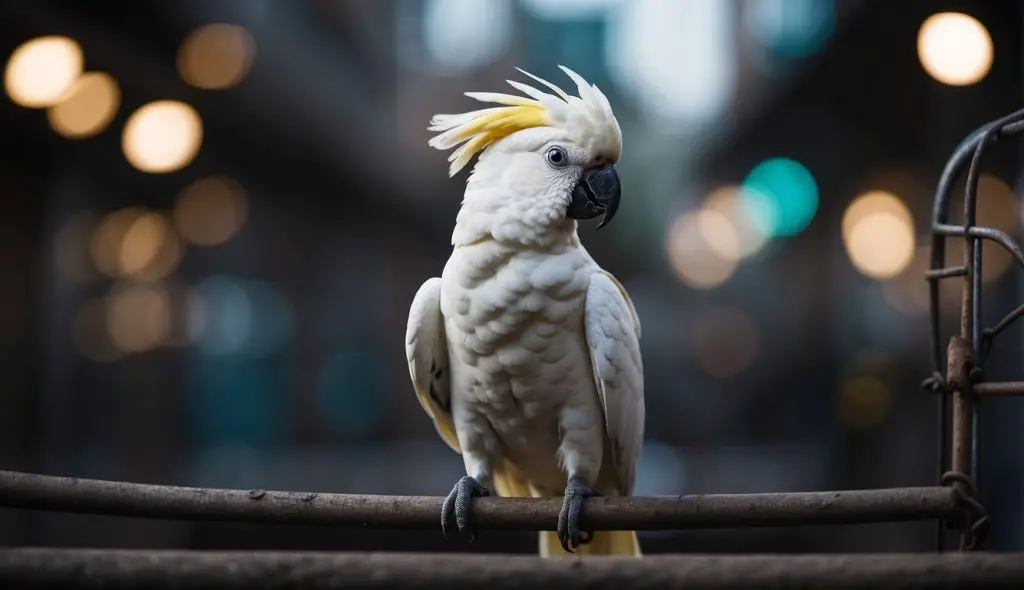
When my cockatoo screams, I consider how its environment and social life might be affecting its behavior. Screaming can be a sign of distress or need for attention, especially in such social animals. Here’s my experience in managing these factors.
Cage Placement and Quality Time
I’ve found that where I place my cockatoo’s cage significantly influences its mood and vocalizations.
If the cage is in a corner or area with little interaction, my cockatoo often screams to express its loneliness or boredom.
By providing ample opportunities for social interaction, perhaps by placing the cage in a living area where it can see and hear family, the screaming is usually reduced.
Also, I make sure to set a daily routine where I spend quality time with my cockatoo to alleviate any potential separation anxiety it might feel.
The Impact of Flock Dynamics
Cockatoos are inherently social birds that thrive on interaction within a flock.
I may be its only flock, but understanding that has helped me cater to my bird’s social needs.
Without the company of other birds or sufficient interaction with the family, my cockatoo might scream as a call for attention, similar to how it would behave in a wild flock.
Establishing a family environment and a consistent routine for social interaction can relieve feelings of isolation that typically trigger screaming.
Behavioral Concerns and Health Issues
In my experience caring for cockatoos, I’ve learned that their screaming can often be a sign of behavioral issues like boredom and anxiety or health-related distress. Let’s explore specific reasons why these beautiful birds vocalize so loudly and what I can do to help.
Dealing with Boredom and Anxiety
Cockatoos are intelligent creatures that require ample mental stimulation to stay happy.
When I leave my bird alone for long periods without entertainment, it can become bored or anxious, leading to loud screeching.
To combat this, I make sure my cockatoo has access to a variety of toys that we rotate regularly to keep things fresh. I also spend quality time with my pet daily, providing the social interaction and stimulation it needs.
- Toys: Puzzle-based, foraging, and shreddable toys to reduce boredom.
- Routine: Consistent schedules that include playtime and training to ward off anxiety.
Recognizing Signs of Distress and Pain
Sometimes, when my cockatoo screams excessively, it could be signaling that something is amiss with its health.
Screeching can be a sign of pain or discomfort caused by medical conditions.
I watch for other signs of distress such as changes in eating habits or appearance. Aggression or a sudden onset of fear can also indicate health issues.
Whenever I suspect my cockatoo is in pain or experiencing health problems, I contact our veterinarian immediately to assess and provide a solution.
- Observation: Regular monitoring of behavior and physical state.
- Veterinarian: Prompt visits for professional medical evaluation.
Training and Managing Screaming Behaviors
In my experience, training cockatoos to manage their screaming involves patience, consistency, and understanding their behavior. Let’s explore some effective approaches I’ve found for calming your bird and establishing a healthy routine.
Effective Techniques to Calm Your Cockatoo
First, remain calm. When my cockatoo screams, I approach the situation with a level head to avoid reinforcing the behavior. Anxiety or frustration can escalate their emotions.
I’ve learned to use a quiet voice and refrain from reacting dramatically to screams. This shows there’s no reward for loud outbursts.
- Identify Triggers: I pay close attention to what sets off the screaming. Is it a particular time of day? A certain activity?
- Environmental Enrichment: I make sure my cockatoo has plenty of toys and engaging activities to keep it occupied. A bored cockatoo is more likely to scream.
- Training Sessions: I use short, consistent training sessions with commands like “quiet” and reinforce silence with treats. Positive reinforcement is critical; I always reward calm behavior.
Creating a Routine and Setting Boundaries
Establishing a routine gives my cockatoo a sense of security and predictability. It’s also a foundation for setting boundaries around screaming:
- Consistent Schedule: Meals, playtime, and bedtime happen at the same times each day. This helps prevent attention-seeking screams that can arise from uncertainty.
- Controlled Interaction: I give attention at regular, predictable times. This reduces demand for attention through screaming. I’m intentional about not reinforcing the habit of screaming for interaction.
- Professional Guidance: If I’m struggling, I consider enlisting an avian behaviorist for tailored solutions.
Frequently Asked Questions
How can I prevent my cockatoo from screaming?
Preventing a cockatoo from screaming can be challenging, but there are several things you can do to help. Firstly, make sure your cockatoo has plenty of mental stimulation, such as toys and puzzles.
Secondly, try to establish a routine for your cockatoo so that they stay busy throughout the day. Finally, spend time training your cockatoo to associate positive behaviours with rewards.
What are some common reasons why cockatoos scream?
Cockatoos scream for a variety of reasons, including boredom, loneliness, fear, and frustration. They may also scream to get attention or to communicate with other birds.
Understanding the reason behind your cockatoo’s screaming can help you address the issue effectively.
Is it normal for cockatoos to scream?
Yes, it is normal for cockatoos to scream. In the wild, cockatoos use their screams to communicate with each other and warn of danger.
However, excessive or constant screaming can be a sign of stress or anxiety.
What are some effective ways to train a cockatoo not to scream?
Training a cockatoo not to scream can take time and patience. One effective method is to use positive reinforcement, rewarding your cockatoo for good behaviour.
You can also try distracting your cockatoo with toys or treats when they start to scream.
How can I create a calm environment for my cockatoo to reduce screaming?
Creating a calm environment for your cockatoo is essential to reduce screaming. Make sure your cockatoo has a comfortable and safe space to retreat to when they feel stressed or anxious.
You can also try playing calming music or using essential oils to create a relaxing atmosphere.
What are some signs that my cockatoo may be screaming due to stress or anxiety?
Some signs that your cockatoo may be screaming due to stress or anxiety include feather plucking, loss of appetite, aggressive behaviour, and excessive grooming.
If you notice any of these signs, it is essential to address the issue as soon as possible to prevent further stress or harm to your bird.


